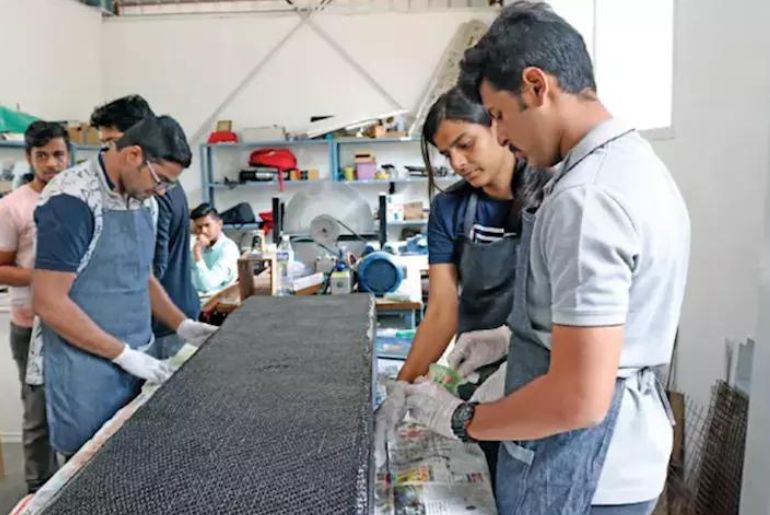Specialized skill sets are becoming more and more necessary in the electric car business as it grows in India, especially in light of the government’s goal of having 30% of the market share for electric vehicles by 2030. Given the range of services this industry provides, both in vehicles and in the EV charging space, skilling and upskilling will be critical to employment growth as the world’s third-largest auto market makes the shift to EVs. According to NITI Aayog forecasts, by the end of the next ten years, the growth of the Indian EV industry will have created about 5 million direct and indirect employment opportunities.
“The unique demands of EV technology—high-density batteries, intricate software integration, and complex electrical components—require an additional skillset,” notes Tata Motors’ Chief Human Resources Officer, Sitaram Kandi. Talking specifically on what Tata Motors is doing for skilling the workforce in electric vehicles, he adds that their capability-building roadmap comprises three progressive stages: awareness, specialist, and expert, addressing the capability development needs of the entire spectrum of employees, from entry-level engineers to executive leaders. He had earlier noted that as the Indian automotive industry transitions towards zero-emission mobility, there is a war for talent in the Electric Vehicle space. He reiterates that their goal is to equip 50 percent of their workforce with advanced auto tech skills within the next five years.
“Our initiatives include in-house training and partnerships with academic institutions to offer certification programs in CESS technologies, fostering a skilled and forward-thinking workforce. Additionally, we’ve launched a “Future of Workplace” strategy, focusing on upskilling our workforce in areas like Mechatronics (Industry 4.0), Auto Electronics, and Vehicle Communications,” he notes.
We also collaborate with leading institutes to recruit talent with MTech and PhD expertise to avoid EV workforce shortages. Alongside this, we run a full-time apprenticeship “Learn and Earn” program offering classroom and practical EV technology training, ensuring our technicians stay ahead in this electrifying journey,” Kandi notes, adding that this holistic strategy ensures our team is at the forefront of industry advancements, prepared to meet the evolving demands of the automotive landscape. It has already 20 percent of its workforce with essential future-ready capabilities.
Tata Technologies too, is focusing on skilling with EV at its core. The company has several engineering programmes such as the Ready Engineer Program and Empower via Education program, which scholarships to female engineers from lower-income backgrounds for degree, postgraduate, and high school courses, promoting diversity and inclusion in the engineering field, to name a few.
“At Tata Technologies, our commitment to upskilling the workforce is reflected in the breadth and depth of our educational offerings. Our proprietary iGET IT platform offers these specialised courses to ensure that our employees and partners are at the forefront of the EV revolution,” noted Pawan Bhageria, President – Global HR, IT, Admin and Education, Tata Technologies.
Bhageria sees EV mobility infrastructure, Battery Management System, Vehicle Powertrain Design: and Charging Infrastructure and Smart Grid Integration emerging as the top courses in the EV skilling industry.
Another company focusing on Battery Management System is EV firm Raptee, via apprenticeship programmes, besides, EV servicing, and cell chemistry to provide practical experience to its people, said Dinesh Arjun, CEO and Co-founder.
“We have been working with the Tamil Nadu Skill Development Corporation (TNSDC) to create specialized EV curriculums and certification programs. For our current workforce, we are developing and implementing in-house training and continuous learning initiatives, utilizing online platforms to provide hands-on experiences,” Arjun adds. For example, the company has registered with the Institute of Printed Circuits (IPC) to offer training courses and certification programs specifically for our Electricals & Electronics department.
“Promoting cross-functional skills and multidisciplinary training in mechanical, electrical engineering, and software development is crucial. Industry and government partnerships will support skill development and influence supportive policies,” he notes.
Not only employees but students are also being primed for the opportunities that this sector has to offer. Courses on EV charging are also gaining traction. Ramesh Alluri, CEO, Teamlease Degree Apprenticeship talks about how the company is collaborating with the Electronics Sector Skills Council (SSC) and the Power Sector Skills Council (SSC), to focus on creating courses that delve deeply into the essential electrical components vital for EVs.
“Students undergo extensive training covering the design, manufacturing, and maintenance of the intricate electronic systems that form the backbone of modern electric vehicles. Simultaneously, our partnership with the Power SSC is dedicated to developing competencies related to EV charging infrastructure—a critical aspect of the EV ecosystem. This includes comprehensive training in the setup, management, and maintenance of EV charging stations, ensuring they meet stringent efficiency, reliability, and scalability standards amid the sector’s exponential growth,” he stated.

